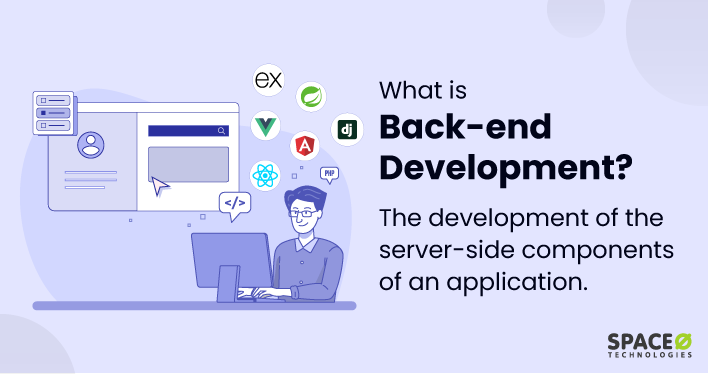Pulse of Information
Your source for the latest insights and updates.
Behind the Curtain: Secrets of Back-End Development
Uncover the hidden gems of back-end development! Dive into secrets that fuel the web and elevate your coding game.
Understanding APIs: The Backbone of Back-End Development
In the world of software development, APIs, or Application Programming Interfaces, play a crucial role as the backbone of back-end development. They act as intermediaries that allow different software applications to communicate with one another, enabling seamless data exchange and functionality integration. A well-designed API can significantly enhance the usability of an application by providing a clear set of rules and protocols for developers to follow. This fosters a collaborative environment where various systems can work together efficiently, leading to improved performance and user experience.
Understanding how APIs operate is essential for any back-end developer looking to build robust applications. APIs can be categorized into several types, including REST, SOAP, and GraphQL, each offering unique features and advantages. For instance, REST APIs leverage HTTP methods to create a stateless communication protocol, while GraphQL allows clients to request only the data they need, optimizing resource utilization. By mastering these API types, developers can create flexible and dynamic applications that cater to varying user needs and respond effectively to changing market demands.

Database Management 101: Essential Skills for Backend Developers
Database management is a fundamental skill for backend developers, as it lays the groundwork for how applications store, retrieve, and manipulate data. A strong understanding of database concepts such as normalization, indexing, and querying is essential. Developers should be familiar with SQL (Structured Query Language) for relational databases and be able to perform tasks such as:
- Creating and managing database schemas
- Writing efficient queries for data retrieval and manipulation
- Understanding and optimizing database performance
In addition to the technical aspects, backend developers must also focus on the operational side of database management. This includes ensuring data integrity, implementing security measures, and maintaining backup and recovery processes. Familiarity with database management systems (DBMS) like MySQL, PostgreSQL, and MongoDB will provide developers with the flexibility to choose the right tool for their projects. Overall, mastering these essential skills in database management will greatly enhance a backend developer's ability to create robust and scalable applications.
What Makes a Back-End Developer? Skills and Tools You Need to Succeed
A back-end developer plays a crucial role in building and maintaining the server-side of web applications. Their responsibilities often include managing databases, server logic, and application programming interfaces (APIs). To succeed in this field, one must have a robust understanding of programming languages such as Java, Python, and Ruby, as these are essential for creating efficient, high-performance web applications. Additionally, knowledge of frameworks like Node.js and Django can greatly enhance a developer’s productivity.
Furthermore, a competent back-end developer must be proficient with various databases, including SQL (such as MySQL and PostgreSQL) and NoSQL options like MongoDB. Familiarity with version control systems like Git is also indispensable for collaborating on code with other developers. As technology continuously evolves, a successful back-end developer should be committed to lifelong learning, staying updated on emerging tools and technologies that can improve development workflows and application performance.